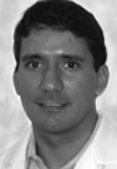Objectives:
To identify “Community Physicians” in underserved areas of Los Angeles County. Community Physicians are those private practice physicians who provide safety net services to vulnerable populations. To identify particular areas of those community physicians’ medical practices which could benefit from technical assistance programs and support systems in order to provide more efficient and improved quality health care to safety net patients.
Background:
The “Safety Net” of health care providers and health care facilities that provide health care services to vulnerable populations has been increasingly threatened in recent times. With the number of uninsured Americans surpassing 45 million and continuing to grow, in addition to the increasing numbers of Medicaid beneficiaries, many health policy experts have raised serious concerns about the future viability of an already unstable Safety Net structure. Adding to the uncertainty of the Safety Net are recent reports (JAMA, March 1, 2006) that document large shortages in Safety Net providers at Community Health Centers, with shortages only expected to increase with the Bush Administration’s plan to increase access to Community Health Centers (CHCs).
While Community Health Centers and County/City Hospitals have typically been considered the backbone of the Safety Net, numerous studies have found that as a whole private practice physicians account for the largest percentage of visits made by vulnerable populations, including uninsured patients. Furthermore, numerous reports including an Institute of Medicine Report in 2000 “America’s Health Care Safety Net: Intact but Endangered”, have clearly recommended that any attempts to strengthen the Safety Net must include those private physicians who provide care for a large portion of vulnerable populations including uninsured patients and Medicaid patients. Health care providers who actively work in underserved communities believe that there are many of these “Community Physicians” who provide services to similar patient populations as the more widely visible CHCs. However, Community Physicians often go unrecognized, unrewarded, and do not benefit from any support services or technical assistance programs offered to CHCs, which would allow them to provide improved services to their Safety Net patients.
Methods:
The investigation of how Community Physicians fit into the Safety Net landscape of Los Angeles County and what areas of their practices are areas of concern which could be addressed by support services and technical assistance programs, was conducted primarily through semi-structured/depth interviews with medical directors and/or clinic directors in those practices. This applied research project also used unstructured interviews with key informants to help guide the interviewing process to identify key areas of interest in Community Physician practices. Key informants from leadership positions at Community Clinic Associations were also used to triangulate the data gathered from Community Physicians. A representative sample of Community Physicians from underserved areas of Los Angeles County was obtained by stratified sampling from multiple data sources with physician data files. A qualitative approach using coded field notes was utilized to analyze the informational interviews with Community Physicians.
Findings:
The informational interviews benefited from a 70% response rate by Community Physicians who were generally open and eager to share information about the services they provide to safety net patients. A key finding during this study confirmed earlier suspicions that there are many Community Physicians in private practice who provide services to similar patient populations as CHCs and who have a similar mission to provide services to vulnerable populations. The patient population of Community Physicians included an average of 15% uninsured patients and 52% Medicaid patients, which therefore accounted for 67% of their total patient population. This patient population is similar to that of CHCs’ average of 40% uninsured and 37% Medicaid, totaling 77% of their patient population. Furthermore, Community Physicians’ combined uninsured and Medicaid patient mix of 67% drastically contrasts previously recognized estimates that private physicians only care for a combined uninsured and Medicaid patient mix of 15%. The informational interviews also revealed four key areas of concern for Community Physicians: supplemental support systems, financial management readiness, informational support systems, and pay for performance preparedness.
Conclusions:
Private Physicians in underserved communities or “Community Physicians” are a key part of the safety net
Community Physicians’ patient population parallels the patient population at CHCs
Community Physicians have few support systems or advice/counseling regarding sustainability/viability of their medical practices
Most Community Physicians have many years of experience in underserved communities in diverse practice settings, and few younger physicians are willing to practice in the private practice setting in underserved areas because of the numerous clinical, administrative and financial difficulties involved
Recommendations:
Community Physicians should be recognized by the health care community as unique health care providers, who provide distinctive services to underserved communities compared to the typical private practice physician
Community Physicians should be afforded similar support services and technical assistance programs as other safety net providers including CHCs
In-depth, formative research studying the applicability of various practical interventions to assist Community Physicians in their practices to improve the following areas
Supplemental Support Services
Financial Management
Information Support Systems
Pay for Performance Preparedness
Preceptor:
Meredith Rosenthal, PhD, Department of Health Policy and Management, HSPH


